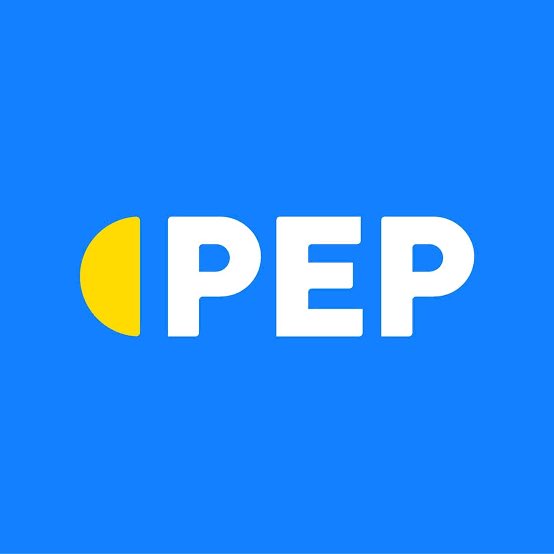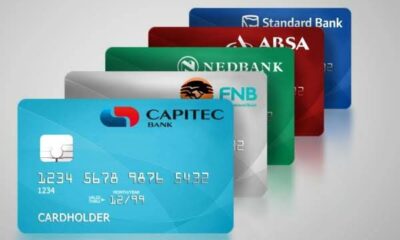Business
Pep Bank? SA’s Biggest Budget Retailer Quietly Prepares to Disrupt Banking

Pep Wants to Be Your Bank And It Might Just Work
In a move that could reshape banking for millions of South Africans, Pepkor, the parent company behind Pep, Ackermans, and Tekkie Town, is preparing to launch its own banking brand inside its more than 6,000 South African stores. The concept, which insiders say may be called “Pep Bank,” aims to offer zero-fee banking, and early whispers suggest Investec is the likely partner backing the financial engine.
If it goes ahead, Pep Bank could become one of the country’s most accessible banking services overnight and make everyday banking as common as buying a school shirt or starter cellphone at your neighbourhood Pep.
A Bank Built for the People Who Already Shop There
Pep is not just another retailer.
It’s the heartbeat of South Africa’s lower-income shopping ecosystem.
From school uniforms to R99 feature phones, Pep’s stores are often the first stop for families on tight budgets. For many communities, especially in townships and rural towns, Pep has a footprint larger than many commercial banks.
So the idea of banking inside Pep stores isn’t just novel. It’s strategic.
The new bank could:
-
Reach millions of customers who already trust the brand
-
Use the retailer’s vast customer data to tailor financial products
-
Offer zero-fee accounts that challenge traditional banks
-
Set up branches quickly without building new infrastructure
“Pep Bank” would be powered through a revenue-sharing partnership between Pepkor and a financial institution believed to be Investec, though both sides remain tight-lipped.
Pepkor insists no formal agreement exists yet. Investec also declined to comment.
But insiders say talks are active and progressing.
Why Pep Bank Makes Sense Right Now
South Africa’s banking landscape is shifting and fast.
Capitec built an empire on serving lower-income customers.
TymeBank managed to open over 8 million accounts with kiosks in retail stores.
Shoprite is quietly turning its loyalty programme into a financial powerhouse.
Now Pepkor wants a slice of that.
Pepkor’s Fintech division already brought in R7.9 billion in just six months, a 35% surge, showing how hungry lower-income consumers are for simple financial solutions they can trust.
Retailers are becoming banks because:
-
They collect massive amounts of consumer data
-
They already serve the under-banked
-
They can roll out services faster than banks
-
A huge chunk of the population still lacks access to affordable banking
Around one in six South Africans still has no bank account or remains under-served by traditional banking models.
Pep knows these customers well, their shopping habits, their payment patterns, their financial pain points.
That’s a goldmine for building a bank.
The Investec Plot Twist
Investec’s name raised eyebrows for one reason:
The bank is known for high-net-worth banking, not mass-market services.
So why partner with Pep?
Simple, Investec wants new revenue streams.
South Africa’s sluggish economy has squeezed traditional banking growth.
Investec has been expanding into:
-
Business banking
-
High-volume payments systems
-
New income segments
And Pep gives them something they don’t currently have:
A deep footprint in South Africa’s working-class market.
It’s an unexpected pairing, luxury banking meets the “lowest prices guaranteed” retailer, but in the world of fintech, opposites often attract.
Public Reaction: Excitement, Skepticism, and Memes
Since news of Pep Bank leaked, South Africans have taken to X (formerly Twitter), Facebook, and TikTok with a mix of excitement and jokes.
Some say Pep Bank will thrive because “Pep never fails us, even during load shedding.”
Others joke that we may soon see:
-
“Bank statements printed next to lay-by slips”
-
“Debit orders declined with a Pep cashier’s smile”
-
“Pep Bank: Where the queue is already 20 people deep”
But beneath the humour is real curiosity and cautious optimism.
For many who struggle with bank fees or live far from bank branches, Pep Bank could be life-changing.
The Bigger Picture: A Retail Banking Revolution
This move fits a growing trend in South Africa:
Retailers are becoming the new frontline of financial inclusion.
Shoprite has Money Market.
Pick n Pay offers banking services.
Woolworths runs its own financial products.
But Pep’s reach is different, deeper, broader, and more culturally rooted.
If Pep Bank takes off, it could:
-
Force traditional banks to rethink fees
-
Transform township and rural banking access
-
Intensify competition in low-income lending
-
Speed up digital financial inclusion
It may also push other retailers to launch their own banks sooner than planned.
A Quiet Disruption with Big Potential
While nothing is signed yet, the groundwork is being laid.
And if the venture goes ahead, Pep Bank may become one of the most disruptive entrants in South African financial history.
For now, all we know is this:
Pepkor is preparing for something big.
Investec may be gearing up for a bold partnership.
Millions of South Africans could soon bank where they buy their school shoes.
And in a country where banking fees often feel like a luxury, a zero-fee Pep Bank might become exactly what the market has been waiting for.
{Source: My Broad Band}
Follow Joburg ETC on Facebook, Twitter , TikTok and Instagram
For more News in Johannesburg, visit joburgetc.com



























